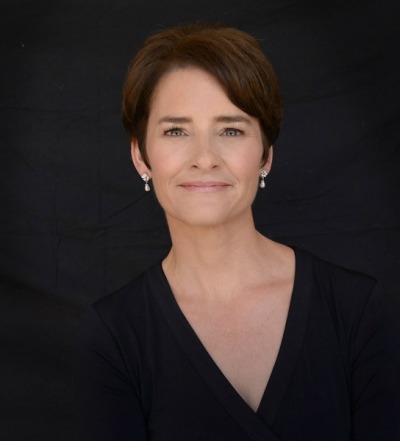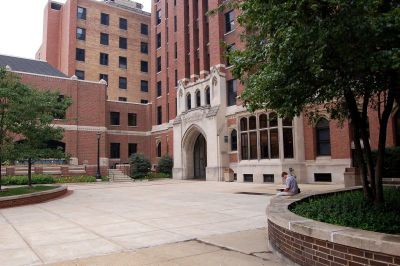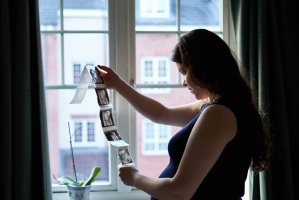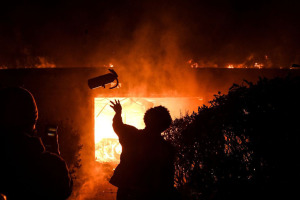Moody Bible Institute Takes Bold Step to Affirm Biblical Inerrancy

In wake of allegations that not all its faculty affirm biblical inerrancy, the Moody Bible Institute took a bold step to define and strengthen its position on inerrancy, and to hold its faculty accountable.
In an email sent to faculty and alumni, the institute announced it is adopting the Short Statement of the Chicago Statement on Biblical Inerrancy, as well as its Articles of Affirmation and Denial. The institute further stated that all faculty will be required to sign an affirmation of the Chicago Statement as a condition of employment beginning with the 2018-2019 academic year.
Moody also announced that it is revising its doctrinal statement regarding the Trinity. The revision adds that God is "three co-equal Persons" and that "these divine Persons, together possessing the same eternal perfections, work inseparably and harmoniously in creating, sustaining and redeeming the world."
Created in 1978, the Chicago Statement has long been regarded as the predominant evangelical definition of biblical inerrancy. It was crafted by leading evangelicals like J.I. Packer, R.C. Sproul and Norman Geisler – and signed by nearly 300 evangelical scholars.
Yet as I reported last month, two Moody professors last year admitted in a Bible/Theology Division meeting that while they affirmed Moody's doctrinal statement, they rejected the Chicago Statement, as well as what's known as a "correspondence view of truth."
This is the classic view of truth on which the Chicago Statement is based, asserting that truth corresponds to reality. Or in terms of inerrancy, a correspondence view means accepting that what the text says happened actually happened, whether it be forming a man from the dust of the earth or walls collapsing around Jericho.
At that same division meeting, two Moody vice presidents also reportedly failed to define what inerrancy means to the institute and rejected an appeal to take the matter up with MBI's president and trustees. In addition, Moody VP and Dean of Distance Learning Bryan O'Neal said that the Chicago Statement is one definition of inerrancy, but not the only one, seemingly opening the door to multiple understandings of inerrancy.

Several weeks ago, MBI issued a statement saying, "(I)t grieves us that some of our faculty have been falsely accused of being in direct opposition to Moody's stated beliefs and mission." However, at a meeting with alumni last month during Moody's Founder's Week, interim president Greg Thornton admitted that the administration is concerned about issues related to "theological drift." He added that he has realized in the past several weeks that the issues are "complex" and that the administration is "in the process of listening and working on figuring that out."
Part of that process apparently involved assembling a faculty committee on inerrancy to help decide the issue. However, several faculty told me that they lacked confidence that the faculty committee would take a strong stand on inerrancy. In the end, the board of trustees took matters into its own hands, voting to adopt the statement when it met on campus earlier this week.
Dr. Norman Geisler, one of the few living framers of the Chicago Statement, said he's heartened by Moody's decision. "I'm excited that they did it," he said. "It's a great statement and a classic representation of the doctrine of inerrancy. . . . It will be better than what they had before."
Similarly, Dr. William Luck, a Moody alumnus and former MBI professor of Bible and theology, said he is pleased with Moody's adoption of the Chicago Statement, which he sees as an affirmation of the institute's historic position.
Luck attended the conference in 1978 which produced the Chicago Statement, along with former Moody professors Harold Foos, Paul Feinberg and Stan Gundry. All four were among the original signers of the statement.
Luck also served on a key committee of the Evangelical Theological Society (ETS) in the 1980s when Dr. Louis Goldberg, former chairman of Jewish Studies at MBI, served as president. In 1983, Luck made a motion that the ETS adopt the Chicago Statement, which Luck said Goldberg supported, along with other Moody colleagues, including Fred Dickason, former chair of the theology department, professors Paul Haik, Paul Nevin, Don Wise, Edgar James and Paul Benware. The motion failed, but a similar one was adopted by the ETS about 20 years later.
"If you look at the list of faculty back then, all of them would have been happy with the Chicago Statement," Luck said. "In my generation anyway, nobody would have had any doubts about the Chicago Statement, or believe that the final refined statement with its midrash (commentary) was the correct one. And it kind of shocked me – I guess it shocked me and it didn't shock me – that there would be people that would disagree with that on the faculty today."
Both Luck and Geisler said they are interested to see what impact the adoption of the Chicago Statement will have on the faculty and administration at MBI. Will faculty who reject a correspondence view of truth resign? One of the professors who reportedly rejects the correspondence view told me that "there are three or four others" at the institute who share his position.
And what about the administrators who failed to seek clarification on inerrancy, and publicly espoused that there are multiple acceptable views? Will they remain?
And what about Rich Weber, the MBI theology professor who alerted trustees to the inerrancy issue, and at the request of Trustee Emeritus Paul Johnson, sent documentation of these and other serious issues to the board? The current administration has stripped Weber of all classroom responsibilities and he is slated for termination at the end of the semester.
No doubt, reporting on his superiors has made him very unpopular with them. But should those who were willing to sacrifice orthodoxy remain while Weber is removed?
After all, no statement – as important and beneficial as the Chicago Statement is – can safeguard an institution against heresy or drift. These statements are simply tools that those who want to protect key doctrines like inerrancy can employ.
But as Geisler told me, "No matter what statement you make, there's wiggle room for people who want to do what they want to do with it. The problem is there's no heresy-proof statement that you can't wiggle out of it and define it another way."
The short statement, for example, does not specifically require a correspondence view of truth. It implies it, stating, "The authority of Scripture is inescapably impaired if this total divine inerrancy is in any way . . . made relative to a view of truth contrary to the Bible's own."
In addition, one of the crafters of the Chicago Statement, R.C. Sproul, wrote a commentary on the statement. In it, he explicitly states, "By biblical standards of truth and error is meant the view used both in the Bible and in everyday life, viz., a correspondence view of truth."
Yet Geisler said there have been scholars who deny a correspondence view, yet claim to embrace the Chicago Statement. "The reason they want to deny it is because they want to say . . . 'What I'm saying doesn't correspond to reality but it's still true,' which is meaningless, absolutely meaningless," he said.
But that is the state of evangelicalism right now. And that's why – to quote former MBI President Paul Nyquist – "The world needs Moody to be Moody now more than ever."
I hope this happens, and the adoption of the Chicago Statement is a crucial first step. I just pray MBI trustees and administration continue walking in the right direction.



























